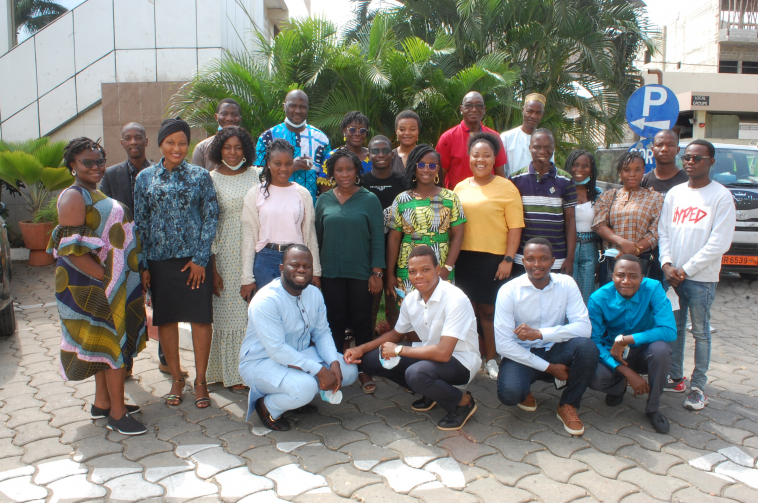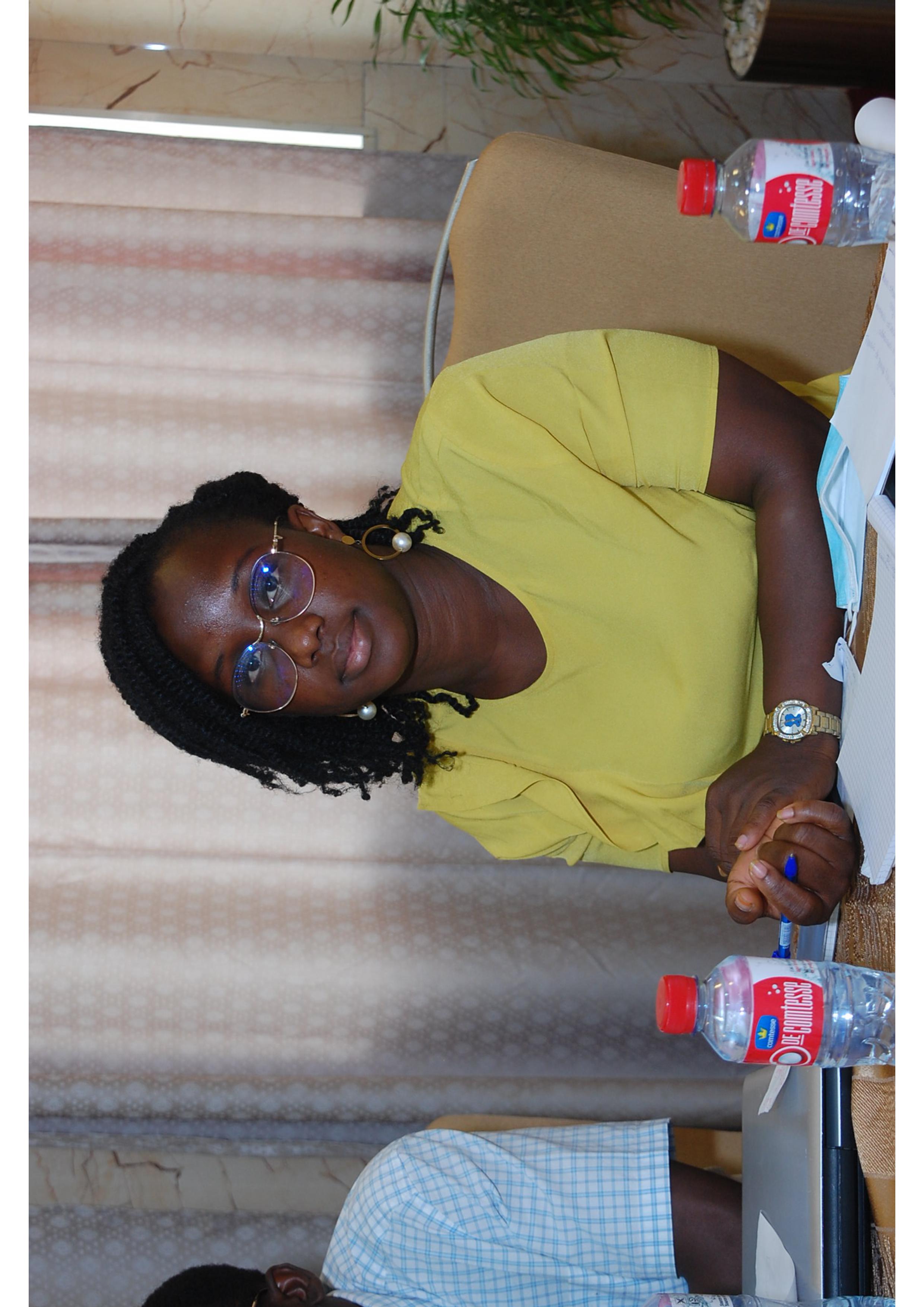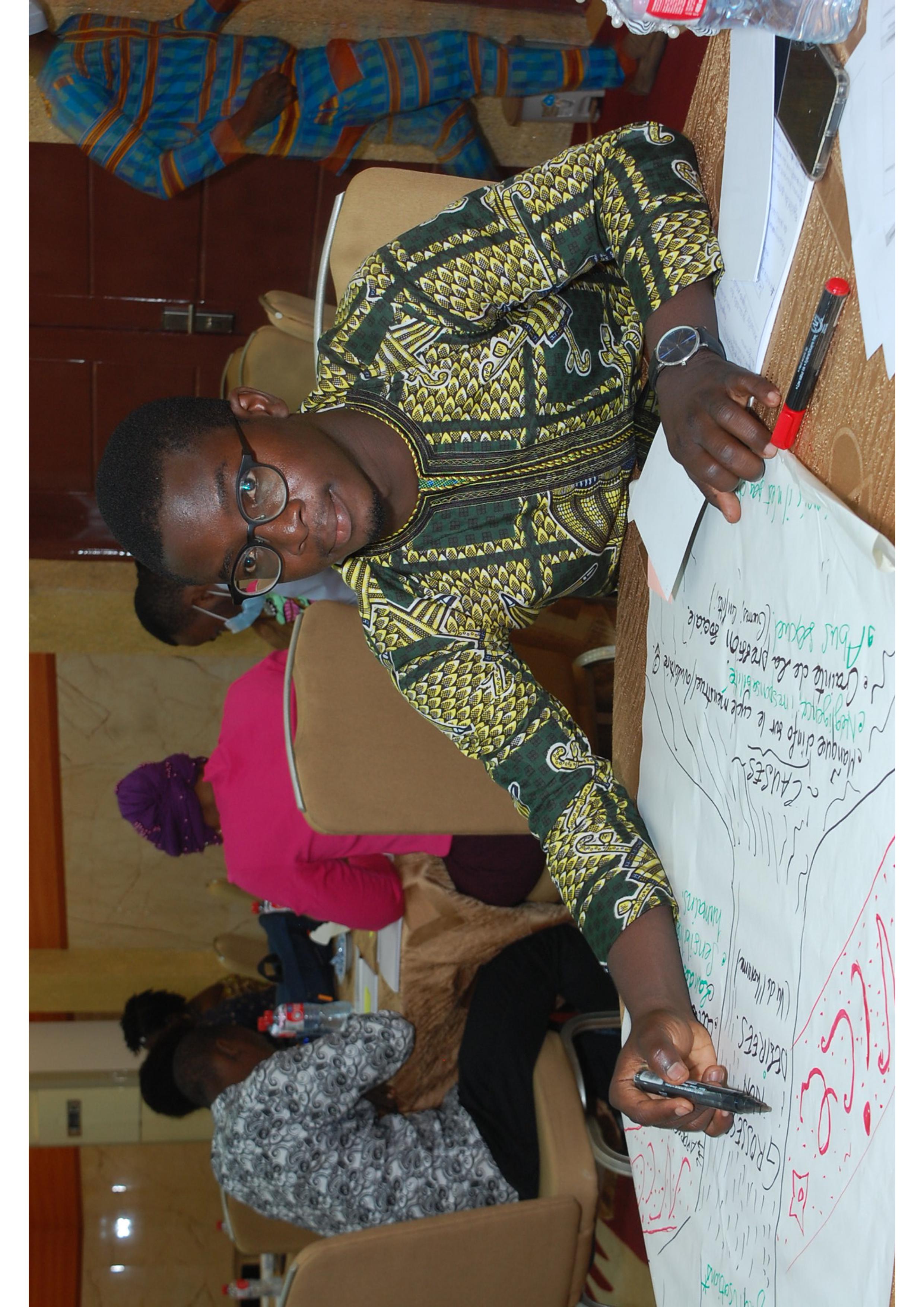Standing strong: youth health workers from Benin share lessons from sexual and reproductive health and rights workshop

From 9–11 March 2022, in Cotonou, Benin, FIGO’s Advocating for Safe Abortion Project worked with the National College of Obstetricians and Gynaecologists of Benin (CNGOB) to organise a capacity building workshop for their counterparts visiting from Mali alongside the Youth Health Workers for Safe Abortion (YHW4SA) – a Beninese network of young pro-choice health professionals set-up in 2021 by CNGOB.
The group attending the workshop was made up of 15 members of the YHW4SA network and five members of the Malian Society of Gynaecology and Obstetrics (SOMAGO).
The aim was to share knowledge and tools on Comprehensive Sexuality Education (CSE) and on best practice to discuss abortion, in order to enable participants to address abortion stigma and strengthen access to safe abortion in their workplaces and wider communities.
What is Comprehensive Sexuality Education (CSE)?
According to the United Nations Population Fund (UNFPA), “CSE enables young people to protect and advocate for their health, wellbeing and dignity by providing them with a necessary toolkit of knowledge, attitudes and skills. It is a precondition for exercising full bodily autonomy, which requires not only the right to make choices about one’s body but also the information to make these choices in a meaningful way.”
Cynthia Kpalete, a sixth-year medical student, General Treasurer of Medical Students for Choice and member of the YHM4S4 network who joined the workshop, explained that the aim of the CSE was to "contribute to a tolerant, open and respectful social climate, to foster respect for sexual diversity and to ensure that one's choices do not harm others. It is composed of various themes such as gender, sexual and reproductive health and rights, HIV, sexual pleasure and fulfilment, sexual diversity, interpersonal relationships, and violence".

The case of Benin: what are the barriers to CSE and their impact?
In Benin, social and cultural norms hinder access to sexual and reproductive health information and services for adolescents and young people. Cynthia Kpalete highlighted the challenges posed by the ongoing stigmatisation of abortion and SRH, sharing that being in the health sector has increased her awareness of the taboos surrounding these issues.
For some, sexuality remains a taboo subject, and young people and adolescents are therefore left to their own devices: they receive false information, and this can lead to unintended pregnancies. Since the pregnancy is unwanted and young people may be afraid to tell their parents, they resort to unsafe abortion. With this comes many risks: sterility, haemorrhage, death...
– Cynthia Kpalete
Dr Gérard Semassa, a young doctor and member of the YHM4S4 network, shared that his “passion for SRH and safe abortion is based on a feeling of revolt in the face of a situation that demands our action”. He shared his experience as a witness of the dangers of unsafe abortion:
A few years ago, a young girl in my neighbourhood died of haemorrhage due to complications from a clandestine abortion. When she had previously shared her wish to terminate the pregnancy with those around her, she was met with insults and accusations. The death of this young woman, and many others, represents a colossal loss for African youth and an absolute barrier to development. This is why I am committed to the promotion of SRH.
CNGOB’s advocacy contributed to achieving the recent legal reform in Benin, which will contribute to the reduction of preventable deaths and disability due to unsafe abortion. Dr Gérard Semassa stressed that the YHW4SA network will work to ensure that "the sexual and reproductive health and rights of young people, mainly young women and girls, are met in the Republic of Benin, in accordance with the texts in force [recent legal reform]”.

Lessons learned during the workshop for the YHW4SA network
Both Cynthia Kpalete and Dr Gérard Semassa shared that they decided to become activists within the YHW4SA network because they recognised the strategic role they held as young members of the health sector to contribute to educating their peers.
Dr Gérard Semassa described the workshop as
a gathering of medical and pharmacy students, doctors, midwives and pharmacists, who came together not only to build their capacity on issues of sexual and reproductive health and rights, but also to define operational guidelines to stop the deaths of young women and girls due to inadequate conditions in the provision of reproductive health services.
For Cynthia Kpalete, the workshop was an opportunity to strengthen her knowledge on sexuality and to better understand concepts related to safe abortion. She emphasised that:
As long as young people don't have access to the right information, we will always face risks. We must give them the right information and deconstruct the social and cultural obstacles that create barriers to CSE and safe abortion. To achieve this, we as health workers need to share our knowledge, approach religious and community leaders to explain the risks we face.
In addition, she stressed the importance of working with all health partners to fight the stigma against women who come to seek family planning or safe abortion services. Finally, she highlighted the importance of "organising awareness-raising workshops, involving young people in carrying out community activities and organising educational conferences on deconstructing socio-cultural myths about sexual and reproductive health and rights".